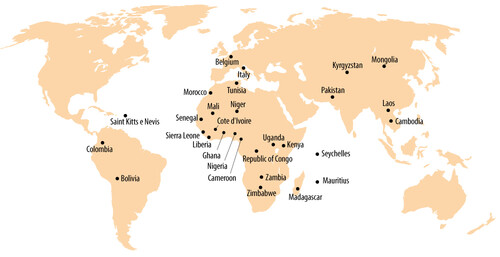FAO Progressive Management Pathway for Antimicrobial Resistance (FAO-PMP-AMR)
As part of its efforts to combat antimicrobial resistance (AMR) through the One Health approach, FAO supports countries with the development of National Action Plans (NAPs) toward:
a) reducing AMR prevalence and slow the emergence and spread of resistance across the food chain and for all food and agriculture sectors; and
b) preserving the ability to treat infections with effective and safe antimicrobials to sustain food and agriculture production.
For most countries, writing a NAP is not the main problem. Instead, the biggest challenges are implementing these plans and demonstrating sustainable action. FAO developed the Progressive Management Pathway for Antimicrobial Resistance (FAO-PMP-AMR) to address this.
WHAT IS FAO-PMP-AMR?
The FAO-PMP-AMR serves as a guide to help countries put their NAPs into action. The progressive approach enables specific sectors to make step-by-step improvements toward the sustainable use of antimicrobials and management of AMR.
These improvements can start as small-scale initiatives, evolve into broader actions in priority sectors and eventually develop into fully-fledged, ‘One Health’ NAPs addressing AMR in all food and agriculture sectors nationwide. In this way, the FAO-PMP-AMR enables countries and specific sectors to work progressively toward the optimal and sustainable use of antimicrobials.
Why to implement FAO-PMP-AMR?
In line with the FAO Action Plan on AMR 2021-2025, the FAO-PMP-AMR assists countries in the following key areas:
- Increasing stakeholder awareness and engagement
- Strengthening surveillance and research
- Enabling good practices
- Promoting responsible use of antimicrobials
- Strengthening governance and allocating resources sustainably
Each area contains specific topics to be addressed in their NAPs. Each topic consists of activities at four stages where it requires specific actions be implemented in order for countries to advance to the next level. The FAO-AMR-PMP provides guidelines, standards and references to help with the planning and implementation of each activity.
How to implement FAO-PMP-AMR?
FAO helps countries apply the FAO-AMR-PMP approach through in-country workshops, which usually take two to four days. These workshops bring together public and private stakeholders to self-assess the level of NAP implementation in their country and agree on actions to be taken to take AMR management to a higher stage as required.
The trained FAO-PMP-AMR facilitators help participants assess progress within the different focus areas and stages. Using the FAO-PMP-AMR tool, stakeholders quantify this progress through a dashboard that displays gaps and next steps for NAP implementation.
At the end of each workshop, stakeholders produce an assessment report. This report provides the country and its key sectors with insights and conclusions about their progress in addressing AMR. In particular, this crucial report can help countries define the specific activities they need to implement next to achieve the better management of AMR risks and more prudent use of antimicrobials.
List of countries
Belgium, Bolivia, Cambodia, Cameroon, Congo, Republic of the, Columbia, Cote d'Ivoire, Ghana, Italy, Kenya, Kyrgyzstan, Laos, Liberia, Niger, Nigeria, Madagascar, Mali Mauritius, Mongolia, Morocco, Pakistan, Saint Kitts and Nevis, Sierra Leone, Senegal, Seychelles, Tajikistan, Tunisia, Uganda, Zambia and Zimbabwe.

